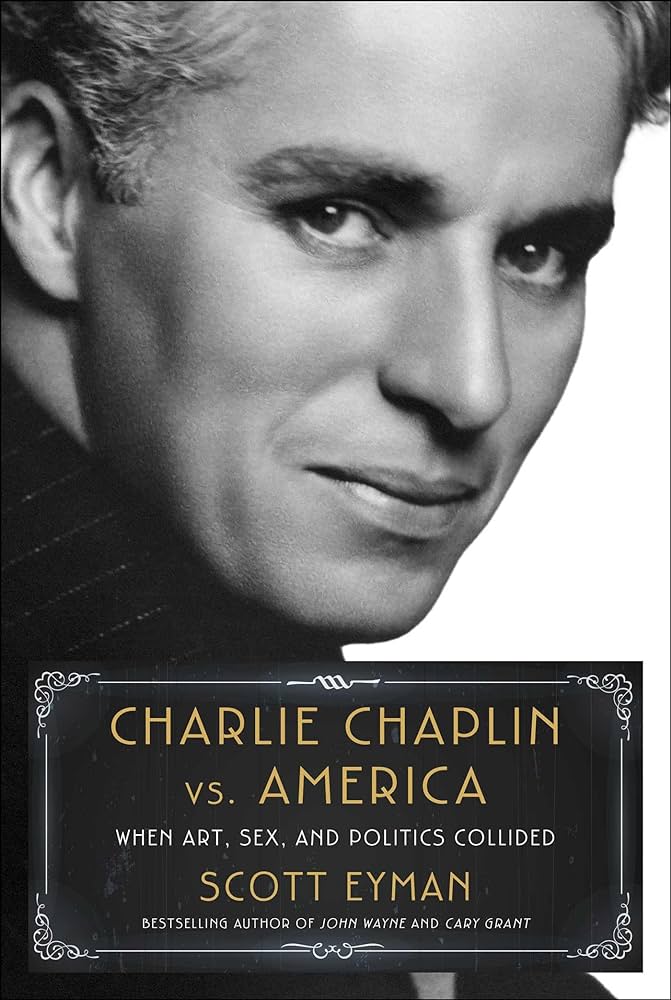Kevin Brianton, Senior Adjunct Research Fellow, La Trobe University, Melbourne, Australia

Scott Eyman is a prolific and highly successful writer of Hollywood history. He has written biographies of John Wayne, Louis B. Mayer, Cecil B. DeMille, and other Hollywood identities. He combines popular appeal with some extensive primary research. In his latest book, Eyman sets himself the task of writing a social, political, and cultural history of the banishment of Charlie Chaplin from the United States. Of course, as Eyman points out, Chaplin was never formally expelled from the country. The Attorney General used a deeply suspect piece of legal trickery to rescind a re-entry permit in 1952. It is doubtful that it could have even worked if Chaplin had just returned to the United States. Chaplin never lived in the United States again and only visited once. Eyman stated that he wanted to focus on “the process by which Chaplin segued from the status of beloved icon to despised ingrate.” (362)
Chaplin’s exile has already been well covered in a biography by David Robinson in 1985. Charles Maland also looked at the reputational impacts in his book on Chaplin’s star image in 1989. Still, these books are more than 30 years old, and we can now look at Chaplin’s exile through the lens of resurgent popular conservatism, so it is time to revisit the issues involved. Eyman opens with a biographical sketch of the life and work of Chaplin during the silent period and the 1930s. It is a fascinating start to the book, particularly the details about his relationship with his mother and brother. He laces the account with anecdotes demonstrating his extensive research. However, given the book’s stated focus, the section has an aimless quality. For example, an extended discussion is made of an exchange of letters between Chaplin and his leading lady, Edna Purviance. It is a thought-provoking glimpse into Chaplin’s private life. After some time, Eyman then dips into Chaplin’s political life, such as the visit of the labor organizer and communist politician William Z. Foster, which drew the attention of the Bureau of Investigation, the predecessor of the FBI. However, the book then meanders on to other topics, such as how Chaplin and David Raksin worked on the musical score for Modem Times. This material is always interesting, but the book’s focus is often lost.
For full review see:
Brianton, Kevin. Film & History; Cleveland, OK Vol. 53, Iss. 2, (Winter 2023): 67-69.